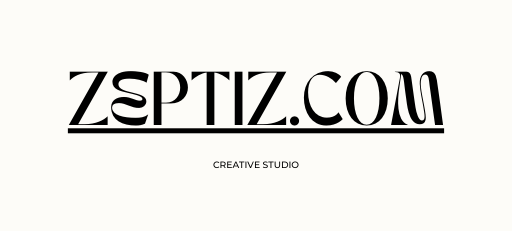What revolt at OpenAI means for Microsoft
Editor’s note (November 22nd 2023): OpenAI said it had agreed “in principle” that Sam Altman would rejoin the artificial-intelligence firm as its chief executive under a new board.
“The mission continues,” tweeted Sam Altman, the co-founder of OpenAI, the startup behind ChatGPT, on November 19th. But precisely where it will continue remains unclear. Mr Altman’s tweet was part of an announcement that he was joining Microsoft. Two days earlier, to the astonishment of Silicon Valley, he had been fired from Openai for not being “consistently candid in his communications with the board”. Then Satya Nadella, Microsoft’s boss, announced that Mr Altman would “lead a new advanced AI [artificial intelligence] research team” within the tech giant. At first it looked like Mr Altman would be accompanied by just a few former colleagues. Many more may follow. The vast majority of OpenAI’s 770 staff have signed a letter threatening to resign if the board fails to reinstate Mr Altman.
The shenanigans involving the world’s hottest startup are not over. The Verge, a tech-focused online publication, has reported that Mr Altman may be willing to return to OpenAI, if the board members responsible for his dismissal themselves resign. Mr Nadella also seems to allow for that possibility. His manoeuvring could look shrewd either way. If Mr Altman returns, then Microsoft, Openai’s biggest investor, would have supported him at a time of crisis, strengthening an important corporate relationship. If Mr Altman and friends do join Microsoft, Mr Nadella could look even smarter. He would have brought in house the talent and technology that the world’s second-most valuable company is betting its future on.
Microsoft has long invested in various forms of AI. It first announced it was working with OpenAI in 2016, and has since invested $13bn in the startup for what is reported to be a 49% stake. The deal means that Openai’s technology has to run on Azure, Microsoft’s cloud-computing arm. In exchange OpenAI has access to enormous amounts of Microsoft’s processing power, which it needs to “train” its powerful models.
The investment became crucial to Microsoft one year ago with the launch of ChatGPT. The chatbot became the fastest-growing consumer software application in history, reaching 100m users in two months. Since then Microsoft has been busy working out how to infuse the startup’s technology into its software. It has launched ChatGPT-like bots to run alongside many of its offerings, including its productivity tools, such as Word and Excel; Bing, its search engine; and even its Windows operating system.
Bringing parts of OpenAI in-house would be a smart move. The technology is central to Microsoft’s future. Having direct control over it eliminates the risk that OpenAI could take its technology in a different direction. And such influence would have been attained for a bargain. Before he was fired, Mr Altman was hoping to raise fresh funds for OpenAI that would value the firm at around $86bn. Hiring OpenAI’s boffins this way is something antitrust regulators would find harder to challenge than a straightforward acquisition. Investors appear keen. Microsoft’s share price fell slightly on the news of Mr Altman’s firing. That loss was reversed when his new gig was announced.
Yet the move would also entail risks. One is reputational. A pillar of Microsoft’s AI strategy has been to keep the technology at arm’s length, thus insulating the company from any embarrassment caused when ChatGPT goes awry. When Meta, Facebook’s parent company, released Galactica, its science AI chatbot, the tool started to fabricate research. The public response was critical enough for Meta to take it down.
Some analysts think that Microsoft may not need insulating any more. It has invested heavily in managing AI risks, with teams working on issues including security, privacy and limiting inappropriate behaviour. Microsoft’s version of OpenAI’s GPT models come with more guardrails than the startup’s do, notes Mark Moerdler of Bernstein, a broker. The firm’s launch of its own array of ChatGPT-like products suggests that it is confident it can manage some of the reputational flak.
A bigger risk is that moving OpenAI in-house could create a “short-term slowdown in the progress of the technology,” argues Mr Moerdler. A team led by Mr Altman within Microsoft would take time to get off the ground because new models need to be designed and trained. If OpenAI lost its brightest employees in the meantime, that could slow the development of its new products—on which Microsoft still depends to jazz up its software.
A third threat is that Openai’s talent goes not to Microsoft, but somewhere else entirely. Marc Benioff, the boss of Salesforce, another software firm, has said he will hire any OpenAI researcher who resigns.
Whether they do leave will in part depend on the exact setup of Mr Altman’s new outfit. The early signs are that it will get plenty of independence. Mr Nadella referred to Mr Altman as the “CEO” of the new unit. Barry Briggs, of Directions on Microsoft, a consultancy, points out that Microsoft has given its previous acquisitions plenty of autonomy, citing the episodes of LinkedIn and GitHub in 2016 and 2018.
The stakes this time are far higher: Openai’s talent is highly sought after and the company’s technology is key to Microsoft’s future. Mr Nadella will hope that he has secured his firm’s interests, whether Mr Altman takes up his new job or returns to the startup he founded. But the chaos is not over yet. ■
Read more of our articles on artificial intelligence

